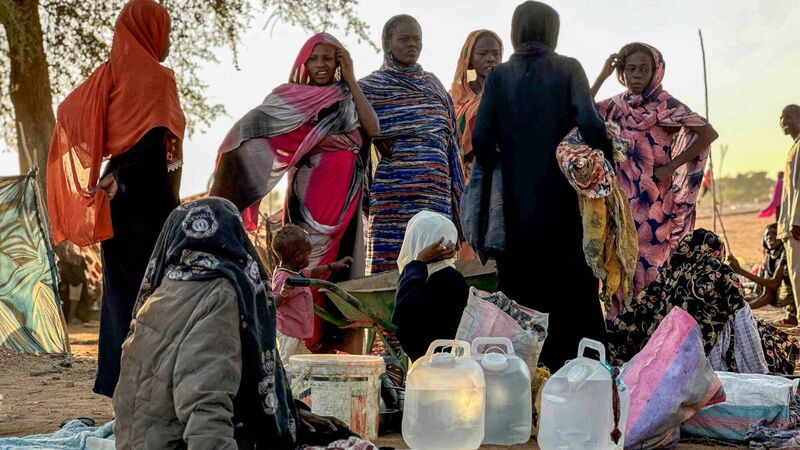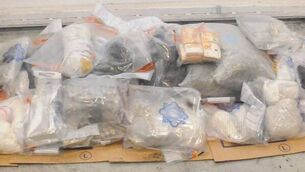Colin Sheridan: Power enables atrocity in Sudan — and Ireland must call it out

Displaced Sudanese who fled el-Fasher after the city fell to the Rapid Support Forces (RSF), rest near the town of Tawila in war-torn Sudan's western Darfur region this week. The UN and independent groups now talk openly of mass atrocities, perhaps even crimes against humanity there. Photo: STR/AFP via Getty Images
In the crowded ledger of global humanitarian disasters, the crisis in Sudan has quietly crept to the top. For the Irish reader accustomed to hearing of genocide in Gaza or war in Ukraine, this disaster may feel even more remote.
But its scale, and the integrity of Ireland’s humanitarian values, demand we pay attention. What is happening in Sudan is horrifying: The world’s largest displacement crisis, a collapsing state, mass killings — and foreign powers whose roles must be scrutinised, not just by columnists and opinion writers, but by embassy’s governments and political leadership.













